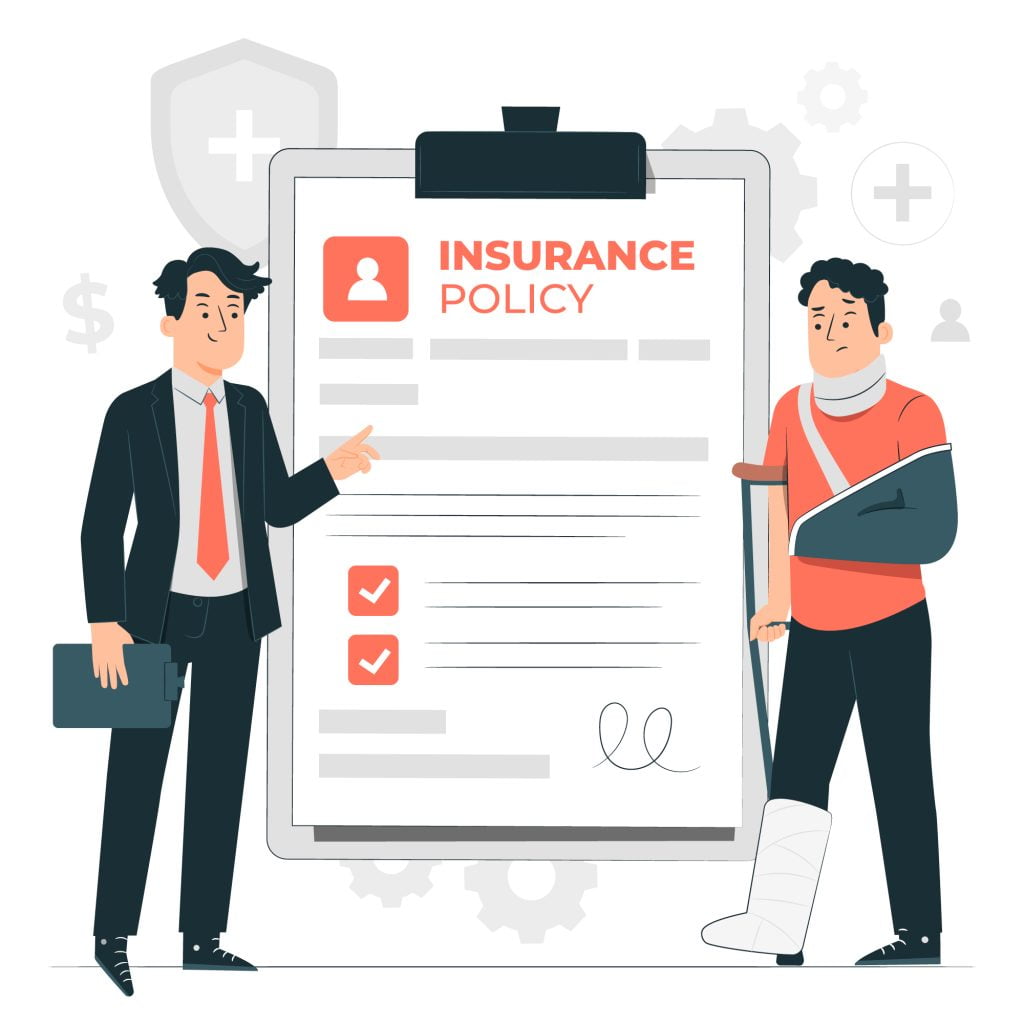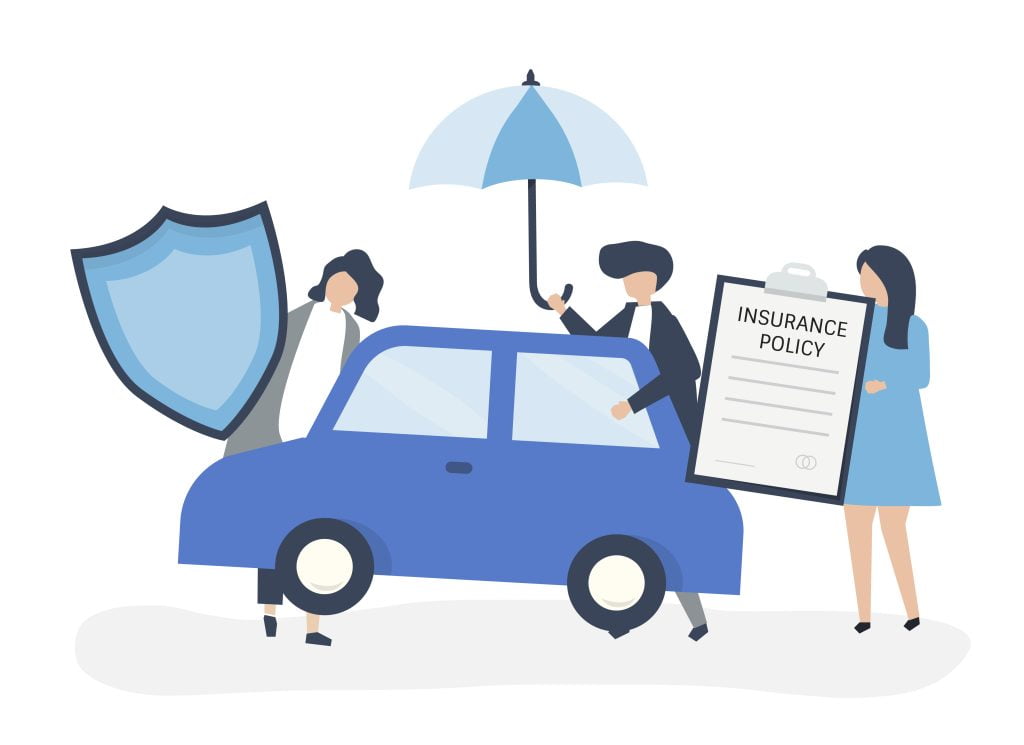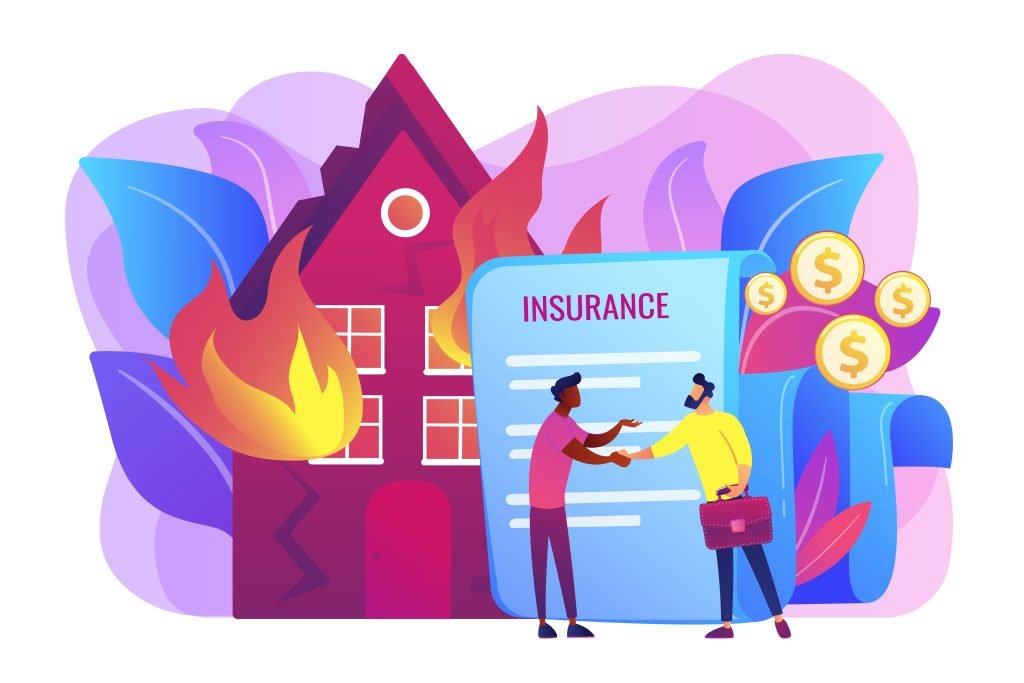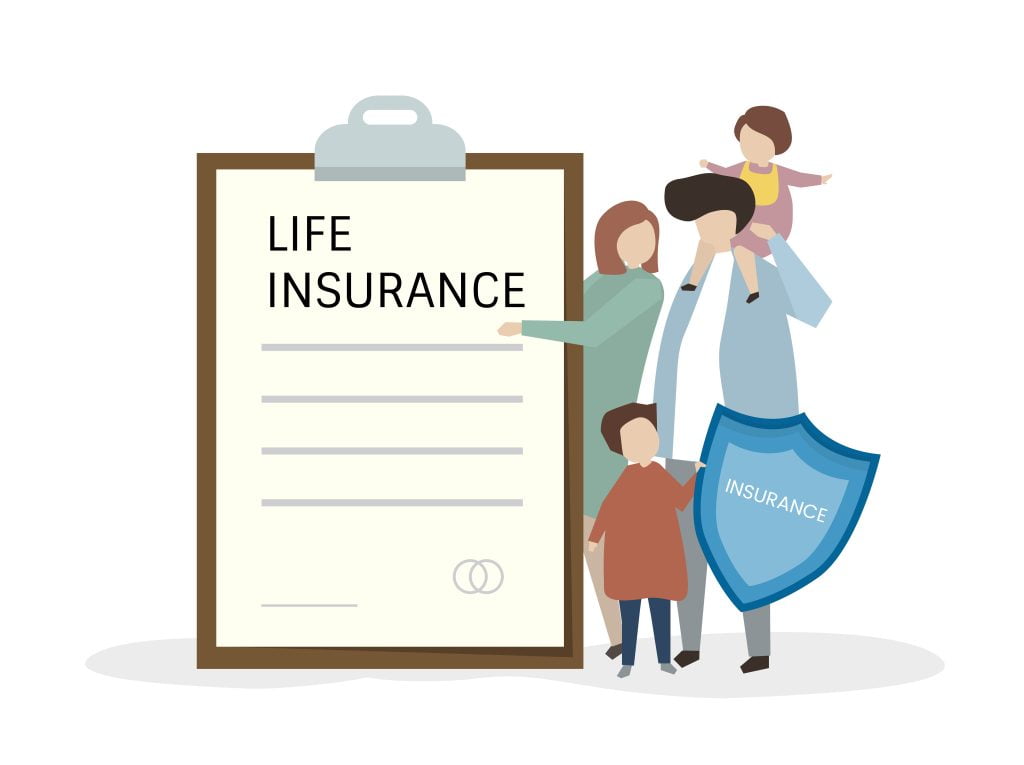Insurance is a financial product that provides protection against uncertain events that can cause financial losses. There are many types of insurance available in the market. That caters to the diverse needs of individuals, businesses, and organizations.
Some insurance policies are mandatory by law.
For instance, Bike / Car Insurance.
Whereas others are optional but highly recommended, such as life insurance.
- What is Insurance?
- How does Insurance work?
- Benefits of Insurance.
- Types of Insurance
- 1. Accident Insurance:
- 2. Aeronautical Insurance:
- 3. Agricultural Insurance:
- 4. Animal Insurance:
- 5. Auto Insurance:
- 6. Aviation Insurance:
- 7. Baggage Insurance:
- 8. Boiler Insurance:
- 9. Bond Insurance:
- 10. Burglary Insurance:
- 11. Business Interruption Insurance:
- 12. Cancer Insurance:
- 13. Car Insurance:
- 14. Cargo Insurance:
- 15. Cash-in-Transit Insurance:
- 16. Child Insurance:
- 17. Commercial Vehicle Insurance:
- 18. Credit Insurance:
- 19. Crop Insurance:
- 20. Cyber Insurance:
- 21. Dental Insurance:
- 22. Disability Insurance:
- 23. Earthquake Insurance:
- 24. Engineering Insurance:
- 25. Fire Insurance:
- 26. Flood Insurance:
- 27. General Liability Insurance:
- 28. Group Insurance:
- 29. Health Insurance:
- 30. Home Insurance:
- 31. Income Protection Insurance:
- 32. Key Person Insurance:
- 33. Liability Insurance:
- 34. Life Insurance:
- 35. Marine Insurance:
- 36. Money Insurance:
- 37. Mortgage Insurance:
- 38. Motor Insurance:
- 39. Personal Accident Insurance:
- 40. Pet Insurance:
- 41. Plant and Machinery Insurance:
- 42. Professional Indemnity Insurance:
- 43. Public Liability Insurance:
- 44. Rental Insurance:
- 45. Rural Insurance:
- 46. Shop Insurance:
- 47. Student Insurance:
- 48. Terrorism Insurance:
- 49. Travel Insurance:
- 50. Wedding Insurance:
- 51. Women Insurance:
- FAQs
What is Insurance?
Insurance is a financial arrangement between an individual (Policy Holder) and an insurance company (insurer), in which the insurer agrees to compensate the policyholder for specified financial losses in exchange for regular premium payments.
How does Insurance work?
The insurance company uses statistical analysis and actuarial science to calculate the probability. And the potential magnitude of risks and losses associated with various events. Based on this, the insurer sets the premium amount. In case of a covered loss, the insurance company compensates the policyholder.
Benefits of Insurance.
- Financial security: Insurance provides financial security to policyholders by protecting them against financial losses. Such as accidents, illness, disability, death, damage to property, and more.
- Risk management: Insurance enables individuals and businesses to manage financial risks and uncertainties. It transfers the risk to the insurance company in exchange for regular premium payments.
- Peace of mind: Insurance offers peace of mind to policyholders by providing them assurance.
- Protection against liability claims: Liability insurance protects individuals and businesses against legal claims arising from accidents, injuries, or damages caused to others.
- Tax benefits: Certain types of insurance policies offer tax deductions on premium payments. Hence can help reduce the policyholder’s tax liability.
Types of Insurance
Insurance is typically categorized into several types. Each type of insurance provides coverage against specific risks. The policyholder can choose the type of insurance. And the coverage amount that best suits their needs and budget. In short, there are 51 types of Insurance polices in India.
1. Accident Insurance:

- It provides financial protection for unexpected injuries or death caused by accidents.
- Also, it covers medical expenses and disability benefits.
- Further, this can be purchased either as an individual policy or as a group insurance policy.
- Premiums are typically based on age and occupation.
- Benefits can be paid as a lump sum or as periodic payments.
2. Aeronautical Insurance:
- It covers aircraft, equipment, and passengers against damages or liabilities.
- Also, It covers loss or damage due to fire, collision, or other accidents.
- Typically, includes liability coverage for third parties, such as passengers or property owners.
- Besides, it is required for all aircraft as per Indian aviation regulations.
- Premiums are based on the type of aircraft and its usage.
3. Agricultural Insurance:
- Provides financial protection for farmers against losses due to damage to crops, livestock, or equipment.
- It covers risks such as natural disasters, disease, or theft.
- Also, It can be purchased by individual farmers. Or as part of a government-sponsored program.
- Premiums are typically based on the type of crop, the location, and the level of coverage.
- Moreover, It helps to stabilize income for farmers. And ensure food security for the population.
4. Animal Insurance:
- It covers medical expenses for pets due to illness or accidents.
- Also, it can cover liability for harm caused by the insured animal to third parties.
- In addition, it provides financial protection for pet owners against unexpected veterinary bills.
- Further, the premiums are based on the age, breed, and medical history of the pet.
- Besides, it can be purchased for dogs, cats, horses, and other domestic animals.
5. Auto Insurance:
- It covers damage to vehicles. And liability for injury or damage to third parties resulting from automobile accidents.
- Also, It is mandatory by law in India for all vehicles.
- Further, It includes two types of coverage: third-party liability and own-damage.
- Premiums are based on the type of vehicle, its usage, and the driver’s history.
- Undoubtedly, It can include additional coverage for personal accidents. Or damage to accessories.
6. Aviation Insurance:
- It covers aircraft and pilots against liability, and physical damage. Or loss of use in case of accidents or incidents.
- Besides, It includes coverage for risks such as hijacking, sabotage, or terrorism.
- Also, It can be purchased by aircraft owners or by airlines.
- Moreover, the premiums are based on the type of aircraft, its usage, and the pilot’s experience.
- Especially, it is required for all commercial aircraft.
7. Baggage Insurance:
- It covers loss or damage to personal luggage during travel by air, train, or ship.
- Also, it provides financial protection for travelers against theft, loss, or delay of their baggage.
- In addition, it can also cover additional expenses. Such as emergency purchases or transportation.
- Indeed, premiums are based on the value of the luggage and the destination.
- Undoubtedly, it can be purchased as part of a travel insurance policy.
8. Boiler Insurance:
- It covers the repair or replacement of boilers or machinery in case of breakdown.
- Also, It provides financial protection for businesses against unexpected repair costs or business interruption.
- What’s more: Can also cover liability for third-party damage.
- Further, premiums are based on the type of equipment, its usage, and the level of coverage.
- Moreover, It can be purchased by industrial, commercial, or residential clients.
9. Bond Insurance:
- It provides financial guarantees to bondholders in case of default by the issuer of the bond.
- Also, known as surety bonds or guarantee bonds.
- Besides, it can be purchased by contractors, suppliers, or other parties involved in construction.
- Moreover, Premiums are typically based on the amount of the bond. And the creditworthiness of the issuer.
- Importantly, it helps to mitigate the risk of non-performance or financial loss to the bondholders.
10. Burglary Insurance:
- It covers loss or damage to property as a result of burglary or theft.
- Also, it provides financial protection for homeowners. Or businesses against theft or break-in.
- In addition, it can also cover damage to property caused by the thieves during the burglary.
- Clearly, the premiums are based on the type of property, its location, and the level of security.
- Furthermore, it can be purchased either as property insurance or as a standalone policy.
11. Business Interruption Insurance:
- It covers loss of income or profits due to interruptions in business operations.
- Additionally, it provides financial protection for businesses against unexpected events such as fire, flood, or power outage.
- Besides, it also covers additional expenses such as rent, payroll, or relocation costs.
- Premiums are based on the type of business, its revenue, and the level of coverage.
- Moreover, it helps businesses to recover from unexpected disruptions and maintain cash flow.
12. Cancer Insurance:
- It covers medical expenses and other costs associated with cancer treatment.
- Along with, providing financial protection for individuals. Or families against the high costs of cancer care.
- In addition, covers loss of income due to disability or death caused by cancer.
- Premiums are based on the age, medical history, and family history of the insured.
- Again, It can be purchased as an individual policy or as a rider to a health insurance policy.
13. Car Insurance:

- It covers damage to vehicles. And liability for injury or damage to third parties resulting from automobile accidents.
- Mandatory by law in India for all vehicles operating on public roads.
- Includes two types of coverage: third-party liability and own-damage.
- Premiums are based on the type of vehicle, its usage, and the driver’s history.
- Can include additional coverage for personal accidents or damage to accessories.
14. Cargo Insurance:
- It covers loss or damage to goods during transportation by land, air, or sea.
- In addition, provides financial protection for businesses or individuals against unexpected events. Such as theft, fire, or accidents.
- Also, it covers additional expenses such as storage or transportation costs.
- Further, the Premiums are based on the value, type, and destination.
- Can be purchased by importers, exporters, or carriers.
15. Cash-in-Transit Insurance:
- It covers loss or damage to cash or valuables during transportation by armored vehicles.
- Also, It provides financial protection for businesses or individuals involved in cash transactions. Such as banks, retailers, or jewelers.
- Further, It covers liability for injury or death of the guards involved in the transport.
- Premiums are based on the amount and type of cash or valuables transported.
- Clearly, It can be purchased by businesses or individuals.
16. Child Insurance:
- Provides financial protection for children against unexpected events such as accidents, illness, or disability.
- Also, It covers future expenses such as education or marriage.
- Premiums are based on the age, health, and future needs of the child.
- Further, It can be purchased by parents, grandparents, or legal guardians.
- In addition, It helps to ensure the financial security and well-being of the child.
17. Commercial Vehicle Insurance:
- This covers damage to commercial vehicles. And liability for injury or damage to third parties resulting from automobile accidents.
- Mandatory by law in India for all commercial vehicles.
- Includes two types of coverage: third-party liability and own-damage.
- Clearly, Premiums are based on the type of vehicle, its usage, and the driver’s history.
- Moreover, It includes additional coverage for personal accidents or damage to accessories.
18. Credit Insurance:
- Covers loss or damage due to non-payment by debtors.
- Provides financial protection for businesses against default by customers or suppliers.
- Also, cover risks such as bankruptcy or insolvency.
- Premiums are based on the creditworthiness of the customers or suppliers
19. Crop Insurance:
- Covers loss of crops due to natural disasters such as drought, flood, or pest infestation.
- Provides financial protection for farmers against crop failures and revenue losses.
- Also, covers additional expenses such as crop replanting or management costs.
- Moreover, Premiums are based on the type of crop, its location, and the level of risk.
- Especially, Helps farmers to recover from crop losses and maintain their livelihoods.
20. Cyber Insurance:
- Covers loss or damage due to cyber attacks, data breaches, or other cyber threats.
- Provides financial protection for businesses or individuals against losses such as data theft, business interruption, or reputational damage.
- Also cover expenses such as forensic investigation, legal fees, or notification costs.
- Premiums are based on the type of business, its level of cyber risk, and the level of coverage.
- Besides, Helps to mitigate the financial and operational risks of cyber threats.
21. Dental Insurance:
- It covers dental care expenses. For example, routine check-ups, cleanings, fillings, or extractions.
- Also, Provides financial protection for individuals or families against the high costs of dental care.
- Moreover, cover expenses for more complex procedures such as root canals or braces.
- Premiums are based on the age, health, and dental history of the insured.
- Clearly, purchased as an individual policy or as a rider to a health insurance policy.
22. Disability Insurance:
- Covers loss of income or earning capacity due to disability caused by illness or injury.
- Provides financial protection for individuals or families against the financial impact of disability.
- Also, covers expenses for rehabilitation or vocational training.
- Premiums are based on the age, health, and occupation.
- It ensures the financial security and independence of the insured in case of disability.
23. Earthquake Insurance:
- Covers damage to property caused by earthquakes or other seismic events.
- Provides financial protection for homeowners or businesses against earthquake damage.
- Also, cover additional expenses such as temporary living or relocation costs.
- Premiums are based on the location and type of property.
- Beneficial to mitigate the financial risks of earthquakes in high-risk areas.
24. Engineering Insurance:
- Covers loss or damage to engineering projects or equipment due to accidents, errors, or omissions.
- Provides financial protection for engineering companies or individuals against unexpected events.
- Also, cover liability for injury or damage to third parties.
- Premiums are based on the type and scope of the project or equipment.
- It ensures the financial viability and success of engineering projects.
25. Fire Insurance:

- Covers damage to property caused by fire or other perils. Such as lightning or explosion.
- Provides financial protection for homeowners or businesses against fire damage.
- Besides, cover additional expenses such as temporary living or relocation costs.
- Premiums are based on the location and type of property, its value, and the level of fire risk.
- Pro: to mitigate the financial risks of fire damage.
26. Flood Insurance:
- Covers damage to property or assets caused by floods or other water-related events.
- Provides financial protection for homeowners or businesses against flood damage.
- Also, cover additional expenses such as temporary living or relocation costs.
- Premiums are based on the location and type of property, its value, and the level of flood risk.
- Benefits to mitigate the financial risks of flood damage.
27. General Liability Insurance:
- Covers liability for injury to third parties resulting from business operations .
- Provides financial protection for businesses against claims of negligence, errors, or omissions.
- Additionally, covers legal fees and court costs.
- Premiums are based on the type of business, its size, and the level of risk.
- Pro: To ensure the financial stability and continuity of the business in case of legal claims.
28. Group Insurance:
- Provides insurance coverage to a group of individuals. Usually employees of a company or members of an organization.
- Offers the advantage of lower premiums and better coverage than individual policies.
- Can include different types of insurance such as health, life, disability, or accident insurance.
- Premiums are usually paid by the employer or organization, with contributions from the employees.
- Adv: Provides affordable and comprehensive insurance coverage to a large group of people.
29. Health Insurance:
- Covers medical expenses such as hospitalization, surgery, or prescription drugs.
- Provides financial protection for individuals or families against the high costs of healthcare.
- In addition, covers expenses for preventive care such as check-ups or vaccinations.
- Premiums are based on age, health, and medical history.
- Moreover, it ensures access to quality healthcare. And mitigate the financial risks of medical expenses.
30. Home Insurance:
- Covers damage to property or assets caused by perils such as fire, theft, or natural disasters.
- Provides financial protection for homeowners or renters against property damage or loss.
- Also, covers additional expenses such as temporary living or relocation costs.
- Premiums are based on the location, type of property, its value, and the level of risk.
- Pro: To mitigate the financial risks of property damage or loss.
31. Income Protection Insurance:
- Covers loss of income due to disability, illness, or injury that prevents the insured from working.
- Provides financial protection for individuals or families against the financial impact of loss of income.
- Also, covers expenses for rehabilitation or vocational training.
- Premiums are based on the age, health, occupation, and income of the insured.
- Pro: To ensure the financial security of the insured.
32. Key Person Insurance:
- Covers the financial loss that a company may incur due to the death or disability of a key employee or executive.
- Provides financial protection for the company against the loss of expertise, skills, or revenue.
- Also, covers expenses such as recruiting, training, or loss of business income.
- Premiums are based on the age, health, occupation, and value of the key person.
- Helps to ensure the financial stability and continuity of the company.
33. Liability Insurance:
- Covers liability for injury or damage to third parties resulting from accidents.
- Provides financial protection for individuals or businesses against claims of negligence, errors, or omissions.
- Also, covers legal fees and court costs associated with defending against such claims.
- Premiums are based on the type of activity, its level of risk, and the history of claims.
- Moreover, it ensures the financial stability and continuity of the insured in case of legal claims.
34. Life Insurance:

- Covers the financial loss that the beneficiaries may incur due to the death of the insured.
- Provides financial protection for individuals or families against the loss of income.
- Also, cover expenses such as funeral or estate taxes.
- Premiums are based on the age, health, occupation, and value of the insured.
- Also, it ensures the financial security and well-being of the beneficiaries.
35. Marine Insurance:
- Covers loss or damage to ships, cargo, or other marine assets.
- Provides financial protection for ship owners, cargo owners, or other marine operators .
- Also, covers liability for injury or damage to third parties.
- Premiums are based on the type of vessel or cargo, its value, and the level of risk.
- Helps to ensure the financial stability and continuity of the marine industry.
36. Money Insurance:
- Covers loss or damage to money, cash, or negotiable instruments due to theft, robbery, or other perils.
- Provides financial protection for businesses or individuals against the loss of money.
- Also, cover expenses for investigation or recovery of lost or stolen money.
- Premiums are based on the level of risk, location, type, and value of the money or assets.
- Pro: To mitigate the financial risks of loss or damage to money or assets.
37. Mortgage Insurance:
- Covers the outstanding balance of a mortgage in case of death or disability of the borrower.
- Provides financial protection for the lender or borrower against the risk of default or foreclosure.
- Also, covers expenses for legal fees, property taxes, or other costs.
- Premiums are based on the age, health, occupation, and value of the property.
- Prro: To ensure the financial stability in case of default or foreclosure.
38. Motor Insurance:
- Covers loss or damage to motor vehicles such as cars, trucks, or motorcycles.
- Provides financial protection for vehicle owners or operators against the high costs of repairs or replacement.
- Also, cover liability for injury or damage to third parties.
- Premiums are based on the type of vehicle, its value, and the level of risk.
- Adv: To mitigate the financial risks of loss or damage to motor vehicles.
39. Personal Accident Insurance:
- Covers accidental injury or death of the insured.
- Provides financial protection for individuals against the financial impact of disability, or death.
- Also, covers expenses for medical treatment or rehabilitation.
- Moreover, Premiums are based on the age, health, occupation, and value of the insured to the beneficiaries.
- Indeed, it ensures financial security and their dependents in case of accidental injury or death.
40. Pet Insurance:
- Covers veterinary expenses for pets such as dogs, cats, or horses.
- Provides financial protection for pet owners against medical treatment or surgery.
- Further, covers expenses for preventive care such as vaccinations or routine check-ups.
- Premiums are based on the type, age, and health of the pet,.
- Moreover, It helps to ensure access to quality healthcare and mitigate the financial risks of pet ownership.
41. Plant and Machinery Insurance:
- This covers loss or damage to industrial or manufacturing equipment due to accidents.
- Provides financial protection for businesses against the high costs of repairs or replacement of machinery.
- Also, covers expenses for loss of business income or additional costs of production.
- Premiums are based on the type, age, and value of the machinery.
- Helps to ensure financial stability in case of loss or damage to machinery.
42. Professional Indemnity Insurance:
- Covers liability for professional services or advice provided by individuals or businesses.
- Provides financial protection for professionals or companies against claims of negligence, errors, or omissions in their services.
- And cover legal fees and court costs.
- Premiums are based on the type of profession or service, its level of risk, and the history of claims.
- Pro: To ensure financial stability in case of legal claims.
43. Public Liability Insurance:
- Covers liability for injury or damage to third parties in the course of business activities.
- This provides financial protection for businesses or individuals against compensation, legal fees, or court costs.
- Also, covers expenses for loss of business income.
- Premiums are based on the type of business, its level of risk, and the history of claims.
- Helps to ensure the financial stability of the insured in case of legal claims.
44. Rental Insurance:
- Covers loss or damage to rental properties such as apartments, houses, or offices.
- Provides financial protection for landlords or tenants against repairs or replacement of rental property.
- Also, cover liability for injury or damage to third parties.
- Premiums are based on the value, location, and level of coverage required.
- Pro: To ensure the financial stability of landlords or tenants.
45. Rural Insurance:
- Covers risks associated with agriculture or rural livelihoods, such as crop failure, livestock mortality, or loss of income.
- Provides financial protection for farmers or rural households against the high costs of such risks.
- Can also cover expenses for agricultural inputs or equipment.
- Premiums are based on the type of agriculture, the location, and the level of risk associated with the crops or livestock.
- Helps to ensure the financial stability and continuity of rural households and the agricultural sector.
46. Shop Insurance:
- It covers loss or damage to shops or retail businesses. Due to events such as fire, theft, or natural disasters.
- Further, provides financial protection for business owners against repairs or replacement of stock or property.
- Also, cover liability for injury or damage to third parties.
- Premiums are based on the type, value of the business, location, and level of coverage.
- Helps to ensure continuity of the business in case of loss or damage to the shop or retail space.
47. Student Insurance:
- Covers risks associated with student life, such as medical emergencies, accidents, or travel-related incidents.
- Provides financial protection for students or their families against such risks.
- In addition, covers expenses for study interruptions or cancellations.
- Premiums are based on the age, health, and level of education of the student.
- Further, it ensures the financial security of students and their families during their education.
48. Terrorism Insurance:
- Covers losses or damages due to acts of terrorism, such as bombings or attacks.
- Provides financial protection for businesses or individuals against the high costs of such events.
- Also, cover expenses for loss of business income or additional security measures.
- Premiums are based on the level of risk associated with the location or type of business or property.
- Pro: To ensure the financial stability and continuity of the insured in case of acts of terrorism.
49. Travel Insurance:

- Covers risks associated with travel, such as medical emergencies, trip cancellations, or lost or stolen luggage.
- Provides financial protection for travelers against the high costs of such risks.
- Also, cover expenses for emergency medical treatment or evacuation.
- Premiums are based on the destination, duration, and level of coverage required.
- Pro: To ensure the financial security of travelers during their trip.
50. Wedding Insurance:
- Covers losses or damages related to weddings, such as cancellation or postponement due to unforeseen events.
- Provides financial protection for couples or their families against such risks.
- Also, cover liability for injury or damage to third parties during the wedding event.
- Premiums are based on the value and complexity of the wedding event.
51. Women Insurance:
- Offers coverage specific to women’s needs such as breast cancer, maternity expenses, or women’s specific critical illnesses.
- Provides financial protection for women against medical treatment or hospitalization.
- Additionally, covers expenses for pregnancy-related complications or infertility treatments.
- Premiums are based on the age, health, and medical history of woman.